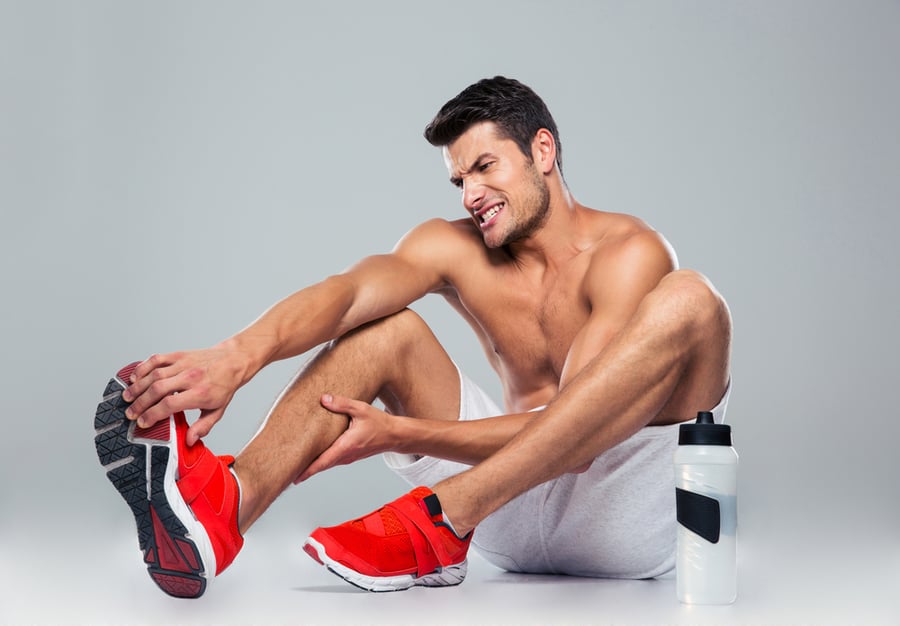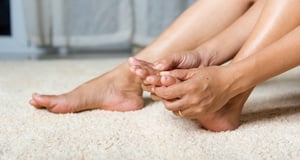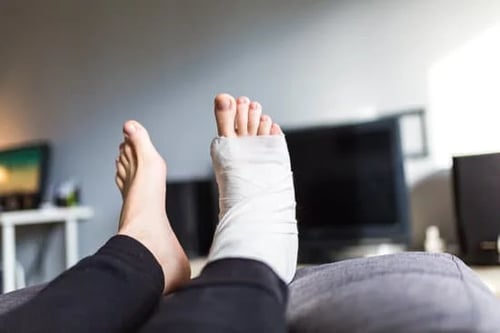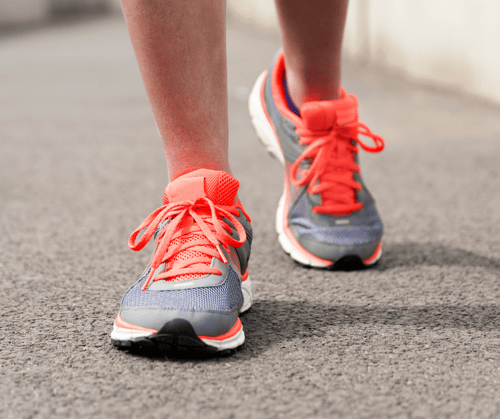
You might expect a back spasm after heavy lifting, but foot cramps tend to attack without warning — sometimes even in the dead of night. While the cramps often go away quickly, repeated bouts of them may need to be addressed.
The Dehydration Connection
Like other muscles in your body, foot muscles depend on a balanced level of nutrients within their cell tissue in order to flex and release. Under normal circumstances, these muscle contractions occur without us having to give it much conscious thought.
But when the electrolyte balance in your system is disturbed, nutrients like potassium, magnesium and calcium can’t reach muscles. The depleted muscle tissue can then begin to twitch and even painfully cramp as a result.
What Causes Dehydration?
Some people make the mistake of thinking that not drinking enough liquid is the only cause of dehydration. In fact, other factors can also deplete your system of liquid. Here are some things to consider if you suspect your foot cramps are due to dehydration:
- Working out. Exercising, especially in warm temperatures, leads to heavy fluid loss through sweating, especially if you don’t stop and hydrate.
- Getting sick. Virtually any temporary or chronic illness carries some risk of dehydration, whether it’s through fever, vomiting or diarrhea.
- Medication. If you’re frequently thirsty, or find yourself running to the bathroom more frequently than usual, your current medication may be the cause.
- Liquid intake. Of course, sometimes forgetting to drink enough fluids is the main culprit behind dehydration. In general, men should have about 15 to 16 cups of fluid a day, and women 11 to 12 cups. But if you have special considerations or frequently work out, a hydration calculator can be helpful.
If you suspect dehydration is causing your foot cramps, correcting the factors that you can is an obvious way to deal with the issue. Most important, of course, is upping your fluid intake. Along with water, drink juice, milk and herbal teas for the maximum benefit. Keep in mind that beverages with alcohol or caffeine have dehydrating properties.
Remember that adding more foods high in water content, such as cucumbers, juicy fruits and non-salty soups and broths, can provide about 20 percent of your daily fluid.
Other Cramping Causes
Of course, dehydration isn’t always the reason people experience foot cramps. Other possible culprits include compressed nerves or a narrowing of the arteries. Both of these conditions tend to cause leg and foot cramps while walking or working out, and require medical attention.
As with a lack of adequate fluids, a poor diet can also rob your muscles of the nutrients they need in order to contract and release properly. If you’re not eating enough foods rich in potassium, magnesium and calcium, foot cramps may occur.
When the Pain Strikes
When foot cramps do strike, there are a few simple methods for stopping them quickly. If you’re sitting or lying down, slowly stand and gradually put weight on your foot. This method works best on those sharp, “sneak attack” foot and leg cramps.
For ongoing spasms, try a foot bath in a basin filled with warm water and Epsom salts, or wrap a heating pad around your foot until the cramping stops.
Still concerned? Contact our office to discuss more long-lasting solutions.






